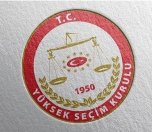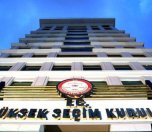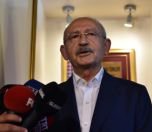Click to read the article in Turkish
The Supreme Election Council (YSK) announced its justified ruling on the annulment of İstanbul Metropolitan Mayoral elections last evening (May 22).
The ruling of annulment dated May 6 was given by a vote of seven members against four. Accordingly, YSK Chair Sadi Güven and three other members, namely Cengiz Topraktaş, Kürşat Hamurcu and Yunus Aykın, have expressed dissenting opinion to the verdict of annulment.
Some objections and dissenting opinions expressed by these four members are briefly as follows:
Sadi Güven: There were representatives from AKP on balloting committees
* The fact that balloting committees were formed in an unlawful manner cannot be considered a cause for the annulment of elections. The irregularities committed in forming the balloting committees does not constitute a state of "absolute unlawfulness".
* There were also representatives from the [ruling] Justice and Development Party (AKP) at the ballot boxes. In 750 of 754 ballot boxes, there were representatives from the AKP.
* In almost all of the ballot boxes, members from both the AKP and other political parties were on duty and they signed the ballot box result minutes.
* Though the prosecutor's offices launched investigations into the allegations that irregular voter registrations were made by showing public buildings, articulated lorry parks and empty fields as residences in Büyükçekmece, they are not referred to as a justification to annul the elections.
* It has been detected that a total of 706 restricted voters, convicts and people with mental disabilities cast votes in İstanbul elections, which did not have an impact on the election results.
Cengiz Topraktaş: Unsealed votes were deemed valid
* The fact that balloting committees were not properly formed cannot be an absolute justification in itself to annul the elections.
* Up until this last verdict given by our Supreme Council, there was no verdict foreseeing the annulment of an election due to the appointment of balloting committee chairs and members.
* Ruling on the unsealed voting papers in referendum on April 16, 2017, the YSK concluded that "the failure of balloting committee members to seal the voting papers took place without any faults on the part of voters and, therefore, the unsealed voting papers and envelopes should be considered valid so that the will of the voters could be reflected at the ballot boxes.
* It is not possible for the voters to object to the formation of balloting committees and know how balloting committees are formed.
Kürşat Hamurcu: No concrete evidence or documents
* The fact that balloting committee chairs were not public officers is not a fault that can be attributed to voters. Thus, considering the votes cast at these ballot boxes to be invalid and, thereby, disregarding the will of the voters who voted at these ballot boxes mean an interference in the right to vote and to be elected, which is a fundamental civil right guaranteed by the Constitution as well as international agreements and electoral legislation.
* No members of the balloting committees from any of the five political parties raised any complaints or objections with the allegation that the balloting committee chairs who were not public officers attempted to direct, change or influence the votes of the voters.
* At the ballot boxes where the balloting committee chairs were not public officers, no concrete evidence or documents explaining for what reasons the votes should be considered invalid have been presented.
Aykın: Justified ruling must comply with brief ruling
* In the documents submitted to the Council by the AKP as appendix to its petition of extraordinary objection, no applications have been made for the balloting committee chairs who were not public officers.
* The justified ruling must comply with the brief ruling. The justified ruling is announced with the aim of explaining for what reasons the ruling in question has been given and the fact that the justified ruling is based on other reasons than the ones stated in the brief ruling makes it difficult for both dissenting members and related parties to inspect the ruling. (EKN/SD)








132.jpg)